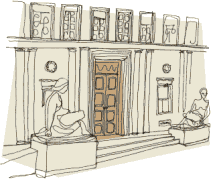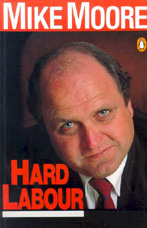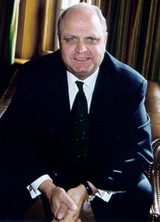 |
|
|


|
| What's New
Speeches
Forums
Contact
|
|
Click here to learn about one dramatic
victory of free trade on the Net this year, as well as its likely
repercussions--which could be to Internet commerce what the
Millennium Round was to the WTO. Decide for yourself!
 We will continue to maintain
our Ministerial
information pages here on this website in conjunction with the
special Ministerial website. To learn more about who is in favor of global free trade, visit this list of supporters, who helped us by opposing
the Religious Persecution Act of 1998 for reasons of economic
soundness, and also opposed sanctions against Indonesia during the
East Timor fiasco last fall, correctly judging such a move to be
premature in the face of mere massacres. We will continue to maintain
our Ministerial
information pages here on this website in conjunction with the
special Ministerial website. To learn more about who is in favor of global free trade, visit this list of supporters, who helped us by opposing
the Religious Persecution Act of 1998 for reasons of economic
soundness, and also opposed sanctions against Indonesia during the
East Timor fiasco last fall, correctly judging such a move to be
premature in the face of mere massacres.
| News from the
WTO
"Globalisation is not an ideology, not a political
theory, but economic evolution." - WTO DG Mike Moore (Reuters)
Indeed, for about two
hundred years the most advanced free trade advocates have been
instructing that humanity must evolve towards less and less
regulated competition, the only natural/virtuous state for the
species. Obeying the dictates of profit-seeking unhampered by
local rules and mores will, in this version of reality, lead
either to heaven for everyone (1750-1900, roughly), or to
prosperity and cleanliness for
everyone (1900-present, roughly).
 Those who advocate this
version of things often have advanced degrees from expensive
schools and are very influential and respectable within their
fields, and are usually associated with the largest industrial
interests; sometimes, like Mike Moore, they have pulled
themselves up by the bootstraps from the working professions.
They have thus proved their "evolutionary" worth, and should
be trusted, but their theories continue to encounter
unnatural, uncomprehending, brute resistance from the
electorates who are just too stupid to know better. Hence
their frustration.
Those who advocate this
version of things often have advanced degrees from expensive
schools and are very influential and respectable within their
fields, and are usually associated with the largest industrial
interests; sometimes, like Mike Moore, they have pulled
themselves up by the bootstraps from the working professions.
They have thus proved their "evolutionary" worth, and should
be trusted, but their theories continue to encounter
unnatural, uncomprehending, brute resistance from the
electorates who are just too stupid to know better. Hence
their frustration.
"The truth
of Seattle is that we were too far apart on matters of
substance.... The protesters didn't stop us. We were just too
far apart." - WTO DG Mike Moore (ibid.)
Click here for one account of the physical
distance separating the delegates at the "Millennium Round" in
Seattle. |
| Alert: Fake WTO Site Misleading Public
|
| A website purporting to be an informative
official WTO site is misleading visitors and undermining the
WTO´s transparency.
The site
claims to be "highly transparent" because it contains "60,000
official documents in three official languages" with "the
equivalent of millions of pages" written in a style
decipherable by devoted (or well-paid) readers.
The site includes on its front page such easily understood
phrases as "[The WTO] is about delivering
better living standards for everyone," and "The multilateral trading system established
after the end of the second World War has... guaranteed peace
and stability" but neglects to mention, for example, the enormous protests against the WTO and
its policies that occurred Nov. 30 in Seattle and elsewhere.
By pretending that its "millions of pages" translate into
transparency, the fake site is obscuring the issues and
helping global commerce to undermine democracy.
See this press release for more information.
|
 More news from the
WTO More news from the
WTO
WTO General Director Mike Moore explains
why the WTO likes free markets: they lead to better pay, and
better pay cleans up the environment!
"Every WTO member government supports open trade
because it leads to higher living standards for working
families, which in turn leads to a cleaner environment."
(The Toronto Star, October 12, 1999)
This must be because working families are really dirty, and
if you give them a little more money they clean themselves up
and stop polluting everything. Or maybe they buy new
fuel-efficient (14 miles-per-gallon) SUVs to replace their old
polluting (13 miles-per-gallon) clunkers.
The WTO gives another reason that free trade will clean up
the environment: by spreading clean technologies (instead of
all those dirty ones it already does).
A summary issued on the organization's Web site
said trade, blamed by radical groups for most of the world's
ills, "could play a positive role... by facilitating the
diffusion of environment-friendly technologies around the
world." (ibid.)
Moore explains that despite these boons, some irrational
people do not like the WTO at all, and that their dislike
seems deep-seated.
"The WTO seems to be copping the abuse for the
failures of every other institution in the world and for
everything that goes wrong," says Mr Moore. (The
Financial Times, October 11, 1999)
Moore reiterates the "money = cleanliness" argument, and
The Financial Times places the blame for the WTO's
unpopularity where it belongs: on those pesky electorates that
always seem to be jamming democracy.
Mr Moore believes the key to winning the
political battle lies in hammering home the message that
liberalisation is a force for good, and that its job is far
from finished. "We have to make the case that the WTO is
about raising living standards," he says. "If living
standards rise, environmental standards rise, families are
better off and children normally have a better education.
That is why we do what do."
The recent behaviour of governments around the world
suggests many implicitly accept that argument. Whether they
can sell it to sceptical electorates with the force and
conviction needed to keep trade liberalisation moving
forward is another matter. (ibid.)
 These
electorates, always reluctant to adopt the rational thinking
of the free trade extremists (who have, after all, proved
their worth by being the world's wealthiest people, or hired
by same), are the only real obstacle to the kind of progress
and development that is considered most likely to benefit all. These
electorates, always reluctant to adopt the rational thinking
of the free trade extremists (who have, after all, proved
their worth by being the world's wealthiest people, or hired
by same), are the only real obstacle to the kind of progress
and development that is considered most likely to benefit all.
Finally, a psychological analysis explains the root cause
of the electorates' peskiness: envy.
Their [critics'] stance is obviously
inconsistent. But it offers an important clue as to why they
are focusing so much fire on the WTO.... For many of the
WTO's frustrated critics, its powers are as much an object
of envy as of anger. (ibid.)
| |

Director-General's Home Page
|
Does free
trade mean a better standard of
living? |
|
During the last thirty years, the U.S. market has been
"opened" and deregulated more, and more quickly, than that of
any other developed country. But the average hours worked per
year in the U.S. increased greatly between 1980 and 1997,
while in every other developed country but one, they declined.
Compared with 1973, Americans must now work six weeks more per
year to achieve the same standard of living--and not
surprisingly, Americans are increasingly dissatisfied with
their lives.... | The WTO's purpose is to
broaden and enforce global free trade. Global free trade already
gives multinational corporations vast powers to enforce their will
against democratic governments. Expanding these corporate powers--as
the WTO intends to do in Seattle and beyond--will further cripple
governments and make them even less able to protect their citizens
from the ravages of those entities whose only aim is to grow richer
and richer and richer.
|
Does free
trade mean a high growth
rate? |
|
There is no evidence at all that it does. There is evidence
it does not: for example, the average growth rate of
developing countries that are rigorously "liberalized" is
2.2%, versus 2.1% for those that are not (a statistically
insignificant difference). And markets were never freer than
before the Wall Street crash of October, 1929, after which
growth slowed much more than
0.1%.... | Already today,
European countries are being penalized by the WTO for refusing to
import genetically modified crops and hormone-treated meat from the
U.S. They are being penalized, too, for purchasing bananas from
former colonies, rather than from El Salvador or Guatemala, which
produce bananas more cheaply, although under harsher conditions. For
according to WTO rules enforcing "free trade," foreign policy and
even human rights considerations are not allowed to enter purchasing
decisions, and if a country is found to have chosen one
|
What is "free
market" theory based on, if not on facts or
statistics? |
|
"Modern" free-market theory, in which goods must be free to
travel unhindered, is little changed from the teachings of
Adam Smith and David Ricardo, who wrote two hundred years ago,
in Britain, under conditions entirely different from those of
the present. There is still no statistical reason to believe
that this theory works, but corporations have many selfish
economic reasons to make it the
law. | product over another
for humanitarian or political reasons, that country is subject to
huge fines and embargoes.
The WTO wants to solidify its successes, and grant itself even
greater powers to dictate the law to democracies. If the WTO
succeeds in Seattle, local and national governments will be less
able to protect themselves against corporate policies, or to enact
their own policies where these do not further free trade. Commerce
will become the rule and everything else, including human rights,
the exception. |
|
What is the
greatest threat to the WTO and its
plans? |
|
People. Or as Charlene Barshefsky, U.S. Trade
Representative to the WTO, puts it: "The single greatest threat to
the multilateral trade system is the absence of public
support."1
The "free market," far from being natural or inevitable as its
proponents claim, is always enforced from above by the heavyhanded
use of authority. Resistance to the ravages of free trade, on the
other hand, is always spontaneous--i.e. natural and inevitable.
Public outrage scuttled the Multilateral Agreement on Investment in 1998; the MAI would have accomplished many of the things
the WTO intends to accomplish in Seattle. WTO General Director Mike
Moore seems to remember that: "I just hope they [WTO critics] are as
reasonable as we try to be and that we engage in an intellectual,
democratic way without any media terrorism."2
Here are some natural, inevitable websites which can help you to
demonstrate, loudly, your own, personal absence of public support
for the terrorism that is the WTO. |
|
And:
1Quoted in "Free Trade under fire,"
Financial Times, 11 October 1999.
2Quoted in
"Trade Body Summit Targeted for Protests," Washington Post, 2
November 1999. |
|